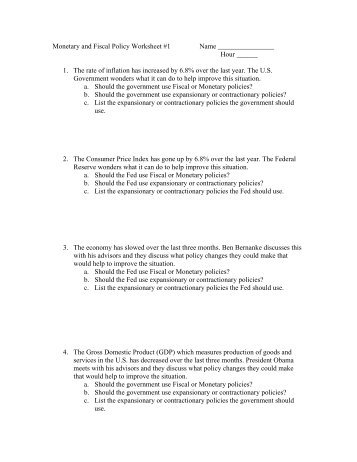

Or it might be on a first-come, first-served basis, administered to long queues. But we must choose–or acquiesce in the destruction of the commons that we call our National Parks. Despite what Hardin might have said, the climate crisis is not a tragedy of the commons. The culprit is not our individual impulses to consume fossil fuels to the ruin of all.
The tragedy of the commons is an economic theory that states that individuals use up resources shared by many to benefit themselves. The reality is often that because individuals tend to act in a selfish way, using resources shared by a group, everyone ends up suffering in the end. Management inside clear boundaries is quite straightforward, but more problematic are resources shared across jurisdictions. For example, at the international level, states are not bound by a common authority and may view restrictions on resource extraction as a threat to their sovereignty. Additionally, more difficulties arise when resources cannot be divided, such as in whale treaties when the fishing of the whales’ food source is separately regulated.
However, top-down government solutions tend to suffer from the well known rent-seeking, principal-agent, and knowledge problems that are inherent in economic central planning and politically driven processes. Solutions to the tragedy of the commons include the imposition of private property rights, government regulation, or the development of a collective action arrangement. The general theory and the concepts within it went largely underappreciated until American ecologist and philosopher Garrett Hardin wrote about them in a 1968 issue of “Science” magazine. Each individual family wanted their cows to eat as much grass from the Common as they could because then the cows would grow more and be worth more to the family. However, the Common had a finite amount of grass that could be eaten at any one time.
An experimental carpool lane in the Netherlands failed because car commuters did not feel they were able to organize a carpool. In Canada, utilities considered putting “smiley faces” on electricity bills of customers below the average consumption of that customer’s neighborhood. Hardin stated in his analysis of the tragedy of the commons that “Freedom in a commons brings ruin to all.” One of the proposed solutions is to appoint a leader to regulate access to the common. Groups are more likely to endorse a leader when a common resource is being depleted and when managing a common resource is perceived as a difficult task. Groups prefer leaders who are elected, democratic, and prototypical of the group, and these leader types are more successful in enforcing cooperation. A general aversion to autocratic leadership exists, although it may be an effective solution, possibly because of the fear of power abuse and corruption.

This concept makes visible the hidden half of our ownership spectrum, a world of social relations as complex and extensive as any we have previously known . As one commentator has noted, “To simplify a little, the tragedy of the commons tells us why things are likely to fall apart, and the tragedy of the anticommons helps explain why it is often so hard to get them back together” . Private owners tend to avoid overuse because they benefit directly from conserving the resources they control. For example, who can tell when dozens of patent owners are blocking a promising line of drug research? While pollution and other environmental degradation have physical impacts on people, their emotional and psychological costs are often overlooked. In Delhi, for instance, the anxiety of knowing that the air is deadly is adding to the physical challenges of living there.
What is the ‘Tragedy of the Commons’?
Further, it may lead some to question the role of supranational governments, such as the UN or the World Trade Organization; as resources become more limited, some may argue that managing the commons may not have a solution at all. First posited in 1968 by American ecologist Garret Hardin, the Tragedy of the Commons describes a situation where shared environmental resources are overused and exploited, and eventually depleted, posing risks to everyone involved. Hardin argues that to prevent this, there should be some restrictions to the amount of usage, for example, property rights must be affixed.

In some parts of the world, vast expanses of rainforests aren’t governed in a way that allows effective management for resource extraction. Timber producers are driven to take as much timber as possible as cheaply as possible, without considering the wider impacts of doing so. As the number of households and companies increase and dump their waste into the water, the water loses its ability to clean itself.
Finally, some critics argue that it is simplistic to assume that depletion results from population size, rather than uneven distribution of resources. Garrett Hardin chooses to direct his commons logic at large numbers of people using limited amounts of resources without considering the amount of resources used per person. Residents of the who coined the term tragedy of the commons world’s poorer regions counter that each of their children uses only 5% of the resources that an American child uses. The world can afford a great number of these children, they argue, and it could afford even more of them if people in wealthy countries drove fewer cars, ate less beef, and polluted less of the world’s air and water.
Then, in the 1960s, advancements in technology allowed fishermen to catch vast quantities of cod, far more than before. However, with each passing season, the amount of cod deteriorated and by the 1990s, the fishing industry in the region collapsed because there wasn’t enough fish to go around. These fishermen thought logically, but not collectively, which led to their downfall. Garrett Hardin, an evolutionary biologist, wrote a paper called “The Tragedy of the Commons” in the journal Science in 1968. In summary of the Hardin paper, the Tragedy of the Commons addressed the growing concern of overpopulation, and Hardin used an example of sheep grazing land when describing the adverse effects of overpopulation.
Biggest Environmental Problems of 2023
Five fishermen see that other individuals are successful in capturing fish while they are using the lake. A good example of the tragedy of the commons theory is the concept of global warming. Lloyd, a British economics writer, created a brief packet that offered the basic concepts behind the tragedy of the commons theory. In its early days, people were generally wary of mixing with anyone outside their immediate family, leaving their homes less and working from home. However, another result of the pandemic was that people began to stock up on food and utilities.
Dr. Banyan is the lead planner for public participation, land use planning, and community… Our editors will review what you’ve submitted and determine whether to revise the article. Britannica is the ultimate student resource for key school subjects like history, government, literature, and more. In systems theory, the commons problem is one of the ten most common system archetypes. The Tragedy of the Commons archetype can be illustrated using a causal loop diagram. The theory became widely known as the “tragedy of the commons” after an essay with this title was published in Science written by Garrett Hardin in 1968.
- There are many examples of the Tragedy of the Commons in the real world.
- This consciousness promotes the boycotting of products or brands and seeking alternative, more sustainable options.
- This is a commitment at the heart of proposals like the Green New Deal.
- Garrett Hardin, who used the analogy of ranchers grazing their animals on a common field.
- Radical environmentalist Derrick Jensen claims the tragedy of the commons is used as propaganda for private ownership.
Because of this, his economic calculation will provide deficient and false results. During his discussion of external costs, Mises explicitly describesthe tragedy of the commons problem that Hardin proclaims in 1968, by applying the problem of external costs to the environment. British author William Forster Lloyd initially conceived this economic theory in 1833. However, Garret Hardin originally used the phrase “Tragedy of the commons” in Science Magazine in 1968. From an economic perspective, when people consume resources individually beyond their limit, the resource available for the rest of the community depletes in such situations, and the demand overpowers supply leading to scarcity. A tragedy of the commons definition implies individuals with access to a common resource use their share freely.
Solutions to Tragedy of the Commons: Legislative Solutions
In economics terms, the tragedy of the commons may occur when an economic good is both rivalrous in consumption and non-excludable. The tragedy of the commons is a problem in economics that occurs when individuals neglect the well-being of society in the pursuit of personal gain. As the global population continues to rise, the food supply needs to increase just as quickly. However, overhunting and overfishing have the potential to push many species into extinction. For example, overfishing of the Pacific bluefin tuna has caused an all-time population low of approximately three percent of their original population.
In a typical example, governmental regulations can limit the amount of a common good that is available for use by any individual. Permit systems for extractive economic activities including mining, fishing, hunting, livestock raising, and timber extraction are examples of this approach. Similarly, limits to pollution are examples of governmental intervention on behalf of the commons. In a modern global economic context, “commons” is taken to mean any open-access and unregulated resource such as the atmosphere, oceans, rivers, ocean fish stocks, or even an office refrigerator. In an Anglo-Saxon legal context the concept of the commons derive from a centuries old principle that not all land can be in private hands, but certain types of goods should only belong to the society.
More Resources
Many fish populations have become severely depleted due to overfishing. One example is the population of cod off the Atlantic coast of the United States and Canada. His use of the word tragedy was meant to emphasize the inevitableness of destiny and the remorseless working of things.
It can be avoided through government regulations or collective agreements. The Tragedy of the Commons is caused by individuals acting in their own self-interest in the usage of scarce resources. This race between fishermen and other individuals causes the fish stock to deplete as there isn’t enough time for the fish to regenerate. The rate at which food can be produced must keep pace with the expansion of the world’s population if it is not to become unsustainable.
Non-governmental solution
They think that farming the seas or developing new strains of wheat will solve the problem–technologically. The population problem cannot be solved in a technical way, any more than can the problem of winning the game of tick-tack-toe. This often happens when we lack appropriate institutions to manage them. Instead, he was using concerns about environmental scarcity to justify racial discrimination. His views are taught across ecology, economics, political science and environmental studies.
A potential solution to this is to affix property rights to public spaces. For example, charging a toll to use a freeway or implementing a tax for dumping wastewater would reduce the number of users to those who act in the best interests of others, not only themselves. Garrett Hardin, who used the analogy of ranchers grazing their animals on a common field. When the field is not over capacity, ranchers may graze their animals with few limitations. However, the rational rancher will seek to add livestock, thereby increasing profits. Thinking logically but not collectively, the benefits of adding animals adhere to the rancher alone, while the costs are shared.
Then in 1968, Garrett Hardin wrote about this concept using the example of common pasture land, which is shared by the local herders. This seems to me an ideal situation that peoples are using the immigration system. Often, but not always, certain kinds of limited natural resources are shared by communities because there are significant challenges to establishing and enforcing private property rights. Fish, forests, and water are good examples of common-pool resources and they are often managed by local communities with or without some government regulation. In the decades following the publication of Hardin’s article, the literature on “common-pool resources”, as they came to be called, has expanded greatly.
The smaller increase in landings beginning around 1978 follows the Northwest Atlantic Fisheries Organization ‘s new program to manage fisheries by adopting fish capture quotas and determined minimum mesh sizes. Notice how both attempts to increase landings were short-lived, and today landings are as low as they’ve ever been. Overall, regulating consumption and use can reduce over-consumption and government investment in conservation and renewal of the resource can help prevent its depletion. The atmosphere is another resource being used and abused, as are forests. Unregulated and illegal logging pose great risks to forests’ ability to store carbon.



Leave A Comment